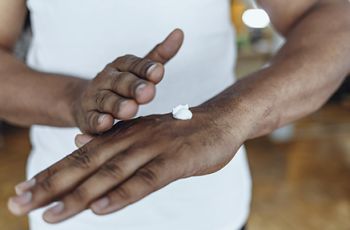
In a paper published in Seminars in Arthritis and Rheumatism, researchers from the George Washington University (GW) evaluated the long-term outcomes for patients with juvenile idiopathic inflammatory myopathies (JIIM), finding significant disease damage in patients who were now of adult age, including muscle weakness, calcinosis, and skin damage. However, they also found there was no severe damage to major organ systems or functional limitations.
JIIM is a group of rare, chronic autoimmune muscle diseases that occur during childhood.
The researchers included Lisa Rider, MD, clinical professor of medicine at the GW School of Medicine and Health Sciences (SMHS) and member of the Myositis Center at the GW Medical Faculty Associates, which is supported in part by the Cure JM Foundation.
Rider, who also serves as the deputy chief and senior research physician in the Environmental Autoimmunity Group at the National Institute of Environmental Health Sciences, National Institutes of Health, said the study came to fruition because Rider and her colleagues in the juvenile myositis space realized not much was known about the outcomes of children with myositis when they become adults.
For the research, the investigators looked at associations among clinical and demographic features with long-term outcomes in 49 adult patients with JIIM, assessed between 1994 and 2016. By studying these patients, they identified clinical factors for long-term damage in JIIM patients.
Researchers found high rates — about 55-60% — of skin atrophy or calcinosis, an abnormal collection of calcium salts in or under the skin and in muscles or tendons. They discovered lipodystrophy, or a loss of body fat, in about one-third of patients. “It wasn’t surprising to me that the patients had a lot of long-term damage,” Rider noted.
“We also saw high rates of muscle weakness and muscle dysfunction, which are discovered from things like exercise intolerance and fatigue from exercise. We are following up on that finding with a new study,” Rider added. That study will be conducted by Josh Woolstenhulme, DPT, PhD, adjunct assistant professor of health, human function, and rehabilitation sciences at SMHS, and Keith Cole, PhD, DPT, visiting assistant professor at SMHS.
Rider said the research revealed good news, as well: while patients had a lot of long-term damage, there was no major organ system involvement.
“There wasn’t frequent damage to the heart, or lungs, or gastrointestinal tract, it was mainly in the skin and musculoskeletal system,” Rider said.
“Long-term outcomes in Juvenile Myositis patients” is published in Seminars in Arthritis and Rheumatism.


